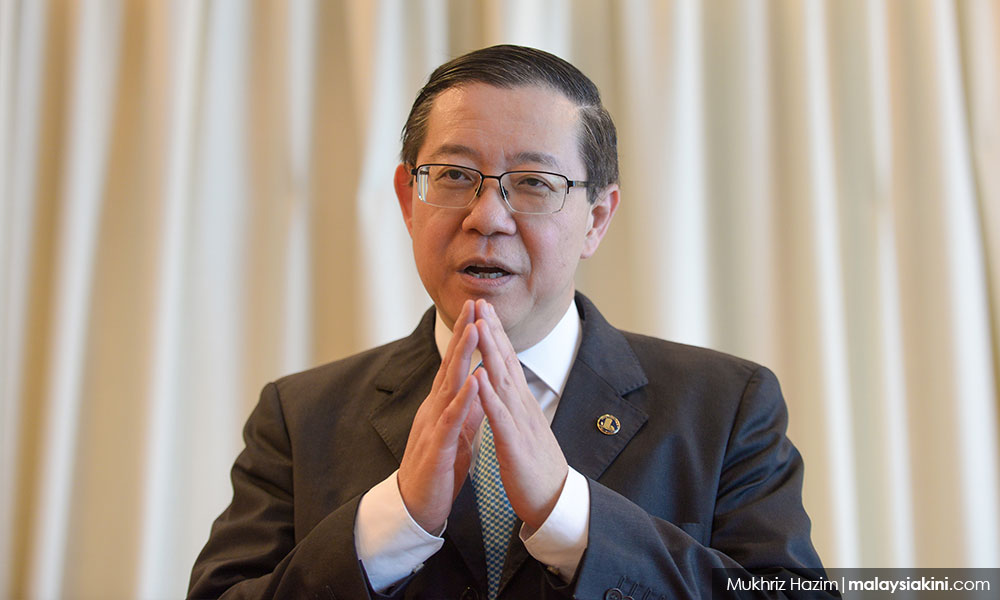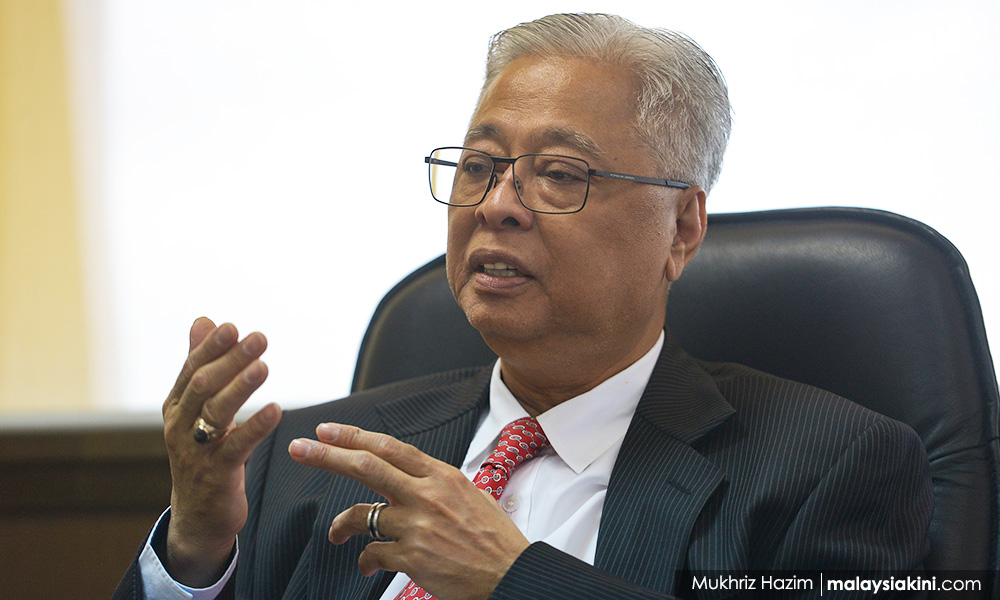
“People may have their own views on how GLCs should operate. We respect their right to those views. But in all fairness, we should be evaluated based only on what we say in our Buku Harapan.”
– Former deputy rural development minister R Sivarasa
The kerfuffle over the appointment of Perikatan Nasional (PN) political operatives to government-linked companies (GLCs) is the kind of false narrative that comes when the previous Pakatan Harapan government, now the opposition, demonstrated that the Buku Harapan was not worth the paper it was printed on.
While frontliners risk their lives, this backdoor government is engaging in the same kind of political shenanigans that Harapan was doing when they were in power and the previous BN regime before that.
When activists and NGOs were pushing the government to institute reforms, they were mocked and sidelined by the very same political operatives who relied on them to get their message of “ubah” (change) to a certain section of the rakyat.
It is pretty rich when Amanah central committee member Faiz Fadzil says: “The country will not advance if PN does not implement institutional reforms, let alone making political appointments that are not the people’s choice since the political parties in PN are the ones that lost the last general election.”
First off, Harapan did not show any political will to implement institutional reforms, especially when it came to appointments that it deemed necessary for Bersatu to connect with its supposed base.
Read Terrence Gomez's piece “How Muhyiddin consolidates power through GLC appointments” and you will understand that under Harapan's watch the same political games were played for the benefit of Bersatu which was supposed to be the Malay tent pole under which all others sheltered.
The article reaffirms that the nexus between political and corporate power is the norm in any administration – even though Harapan claimed that they would reform the system – but more importantly, how Bersatu led by former prime minister Mahathir Mohamad was consolidating power and giving power to then PKR deputy minister Azmin Ali who would later betray Harapan.

Meanwhile Lim Guan Eng (photo), the then finance minister said that claims of patronage were an exaggeration as “there are people who would aggravate the situation by saying that this 10 percent is akin to 100 percent (of positions).
“You can’t say that these 10 percent means that we are not committed (to reform) but before this (it was) almost 100 percent.”
To Lim, everything was hunky-dory when it came to political appointments. Never mind that 10 percent could be powerful positions of influence and strategy.
Gomez was right when he "noted that these appointments violated Harapan’s GE14 manifesto, where it pledged to only appoint professionals to national and state GLC boards and to not make such choices based on politics (Promise 22).”
This however received blowback from PKR MP for Sungai Buloh and then deputy rural development minister R Sivarasa who said: “In other words, a person with political affiliations can serve on a board as long as he has the necessary experience and qualifications to do the job.
“We must be measured against what exactly we promised, not by what people think or interpret we promised.”
What Sivarasa said may have made some sort of pragmatic sense, if only Mahathir had not said that promises made in Buku Harapan were a big burden and that corruption was not a big issue since Harapan took over.
The former premier said: “The fact is corruption is not a very major issue anymore. Previously, of course, people talked about corruption but now there is less and this has been noted by those people.
“But there is still some corruption and we are working on eradicating it.”
Sivarasa also objected to Gomez’s call that GLCs be placed under the purview of parliamentary select committees (PSCs), saying the issue had more to do with control than professionals on the board, claiming “people may have their own views on how GLCs should operate. We respect their right to those views.
“But in all fairness, we should be evaluated based only on what we say in our Buku Harapan.”
In other words, the rakyat was supposed to evaluate Harapan on the Buku Harapan in which the then prime minister has shown utter contempt for. Not that I think placing GLCs under the purview of parliamentary select committees means anything.

Current Defence Minister Ismail Sabri Yaakob (photo), who is now making a name for himself putting his foot in his mouth when it comes to the pandemic response, threatened to quit the Parliamentary Special Select Committee on Major Public Appointments because they were in the dark over major appointments.
Suddenly, Ismail believed that there should be accountability on appointments when the reality is when Umno was in charge, the grand Umno poobah was making all these appointments without referring to anyone or any parliamentary body.
This was similar when Harapan briefly held power. How PKR, DAP and Amanah allowed this to happen says more about them then it does about Bersatu.
Besides what did these Harapan special committees do anyway? PKR MP for Selayang William Leong had to beg for an audience with the prime minister and publicly wondered what the scope of these parliamentary committees was. You mean you did not know, William? Nobody in Harapan knew?
Actually, the PSCs were just for show since they really could not do anything. Besides, when the PSCs were getting worked up by the appointment of Latheefa Koya as MACC head, strangely, lesser appointments of politicians holding public office such as the appointment of Seri Kembangan lawmaker Ean Yong Hian Wah as Port Klang Authority chairperson and Julau MP Larry Sng as the Malaysian Pepper Board chairperson had escaped public and PSC scrutiny.
When political operatives say they want “technocrats” for a position, this is complete horse manure. There are really very few independent public or private personalities in positions of influence in government-linked organisations. Why? Because nobody really wants independent thinkers.
There are people who are competent in their jobs but ultimately, they answer to the political parties and not the government. Harapan told us they wanted to change this but found all manners of ways to distort their manifesto and relied on rabid partisans to distract and demonise the rakyat who wanted reform.
What makes PN’s moves all the more despicable is that they are doing it when frontliners are out there risking their lives. This, while despicable, is not something that Harapan gets to use as a talking point. Harapan had a chance to reform this process but always relied on tired old excuses as to why they were not moving fast enough or at all.
What makes this all the more disheartening, is that if Harapan had actually carried out or was in the process of carrying out serious reforms, they could use it against this unscrupulous backdoor government.
Instead, the best Harapan political operatives can do is point to a non-existent difference.
S THAYAPARAN is Commander (Rtd) of the Royal Malaysian Navy. A retired barrister-at-law, he is one of the founding members of Persatuan Patriot Kebangsaan. - Mkini


Yeap......in the end, whether PH or PN.....all 'makan tahi'.....worst of the lot is an ex PM ( with a smirk on his face ) saying when PH was in power , they did the same.....orang makan tahi jangan ikut makan tahi...diam2 sudah la
ReplyDelete